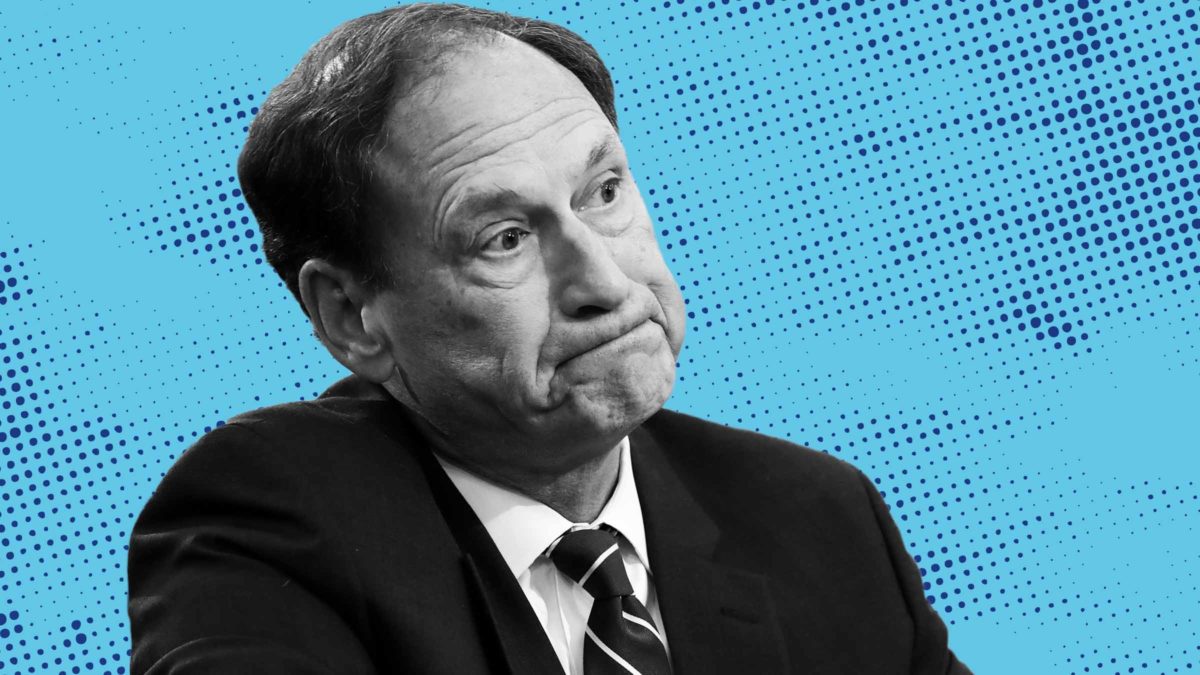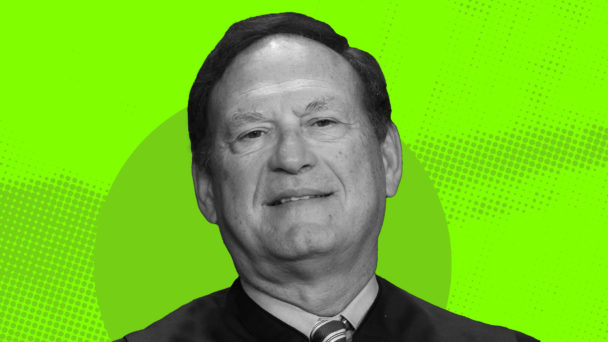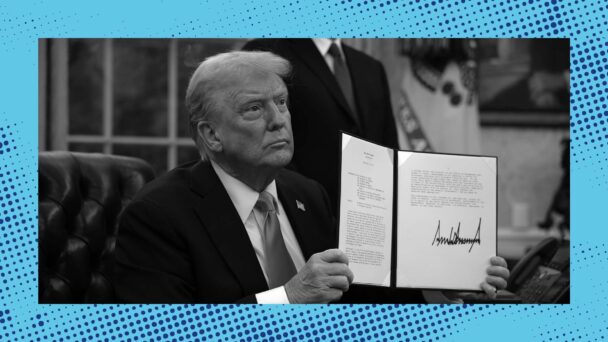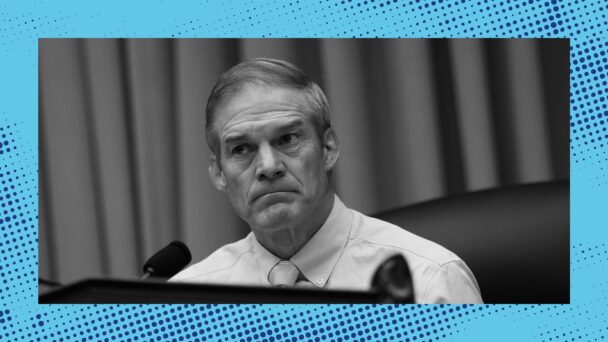In 2006, Charles Moore heard from his old friend Ravindra Kumar Agrawal, with whom he’d worked at Microsoft in the early 1990s. Agrawal wanted to start a business that would provide power tools to farmers in some of the most impoverished regions of India, but he needed money to get the venture off the ground. Would Charles and his wife, Kathleen, be interested in making an investment?
The Moores, worldly citizens that they are, were eager to participate in such a noble venture and put in $40,000—a “significant” sum for them, they say—in exchange for 13 percent of the company, KisanKraft. KisanKraft quickly became profitable, but the Moores gladly put their shares of earnings back into the growing business. The return on their investment, Charles says, was not measured in dollars and cents; it was about “making a difference…in the lives of Indian farmers.”
You can imagine the Moores’ dismay, then, when they received a bill from the Internal Revenue Service requesting payment of $14,729 at their earliest convenience. The government was coming to collect the Moores’ obligations under the “Section 965 transition tax,” a scary-sounding provision of President Donald Trump’s 2017 tax reform bill that imposed a one-time levy on previously-untaxed foreign earnings. The Moores were baffled. “The Section 965 transition tax? What the heck is that?” Charles Moore remembers thinking. “If you haven’t received any income, how can you be required to pay income taxes?”
The Moores decided to fight back. Although they were leery of angering a behemoth like the IRS—you don’t want to be “in their sights,” Kathleen says with a knowing look—they agreed it was “important” to take a stand against injustice. Their latter-day David-and-Goliath struggle made it all the way to the U.S. Supreme Court, which heard oral argument on Tuesday in Moore v. United States, a case about keeping big-government bureaucrats out of the pockets of hardworking Americans who just wanted to make the world a better place.
Clip via YouTube
This, at least, is how the Moores tell their story, in a soft-lit video produced by their lawyers and set to inspirational music. The reality is a little more complicated: Charles Moore spent several years on the board of KisanKraft, which reimbursed his expenses for his trips to India. The Moores put in more money after their initial investment, for a total of around $150,000. In 2014, they lent the company an additional $230,000, which the company repaid the following year with 12 percent interest. In 2019, the Moores sold about 20 percent of their stake for roughly $300,000, according to reporting by TaxNotes and The Washington Post. In other words, Charles and Kathleen may not have been raking in millions from KisanKraft, but they weren’t exactly humble passive investors, either.
The story of how they found their legal team reveals what’s really going on here: In Charles’s telling, they “called up Sam at CEI”—that’s Sam Kazman at the Competitive Enterprise Institute, an anti-regulation think tank in Washington, D.C.—who magnanimously agreed to help. As it turns out, Moore’s father was a CEI board member who sat on President Ronald Reagan’s Council of Economic Advisers. Through Kazman, they connected with Andrew Grossman, a BigLaw litigator with deep ties to the conservative legal movement, and David Rivkin, best known for his side hustle writing fawning profiles of Sam Alito for The Wall Street Journal. If you are a rich person in America who feels entitled to be a little richer, these are the guys you want in your corner.
Again, these—let’s be charitable here—factual inconsistencies are now a matter of public record. But at oral argument this week, none of the justices bothered to ask about them. Instead, the questions for Grossman and Solicitor General Elizabeth Prelogar focused on the technical legal issue in Moore, which is what qualifies as “income” that Congress may tax without apportionment under the Sixteenth Amendment. The Moores contend that because they didn’t “realize” earnings from their ownership stake in KisanKraft—essentially, the cash didn’t actually hit their bank accounts—the government can’t collect from it.
Kazman and company have a powerful interest in shaping this case. A result that narrows the scope of constitutionally taxable income could scuttle the transition tax, which is expected to raise hundreds of billions of dollars over a ten-year period. But it could also pose an existential threat to the previously-uncontroversial taxation of partnerships, S-corporations, and similar entities, imperiling trillions in expected revenue. It could bar future lawmakers from even thinking about enacting wealth taxes like those proposed by Senators Bernie Sanders and Elizabeth Warren—an explicit goal of Moore’s attorneys and their cheerleaders in conservative media. Even former House speaker Paul Ryan, whose usual criticism of corporate tax cuts is that they aren’t more generous, has raised a caution flag here, warning that a decision for the Moores could render a third of the tax code dead-letter overnight.
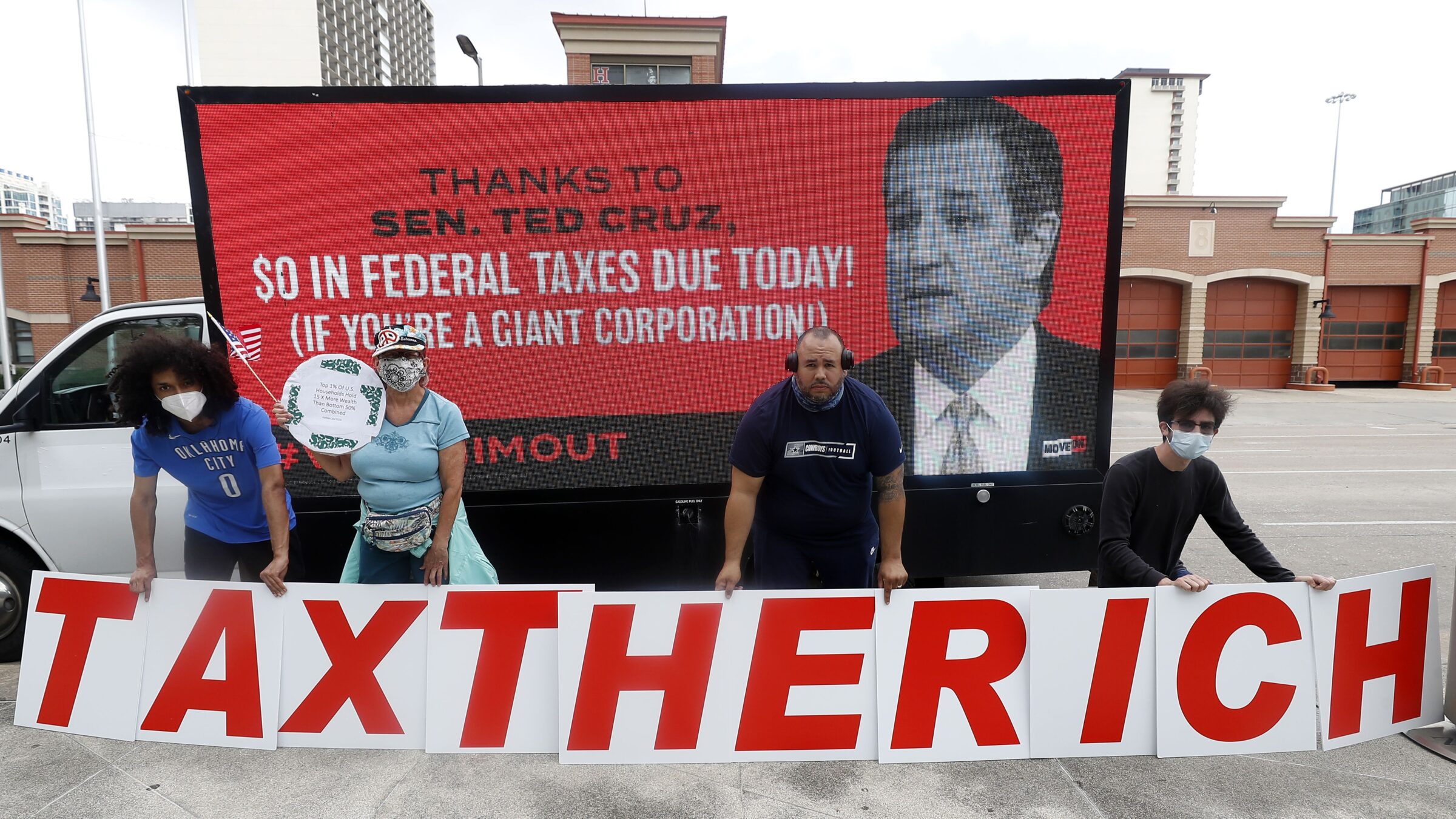
The worst thing Sam Alito can imagine (Photo by Bob Levey/Getty Images for MoveOn)
With stakes this high, it matters whether the vehicles used to answer such questions are on the level or, to use a term of art, embarrassing crocks of shit. This is especially true when public trust in the Court is at a historical nadir. As the law professor Mindy Herzfeld writes in Tax Notes, “For the Court to decide a constitutional question posed with reference to an inaccurate set of facts in order to take the opportunity to express an opinion on a hypothetical tax risks undermining the Court’s legitimacy and creating the impression that its docket and its decisions are too easily manipulated by politically motivated interest groups.”
The standard lawyerly retort here is that the Court decides cases based on the record below, and does not engage in the messy work of factfinding. But by rewarding judicial credulousness and/or strategic cynicism, this uncritical framework allows savvy activists to stack the deck with too-good-to-be-true opportunities to push the law to the right.
Cases with dubious narratives and sock-puppet petitioners have become fixtures of this Court’s docket lately. It didn’t matter, for example, that Joe Kennedy’s private, optional team prayers were neither private nor optional; the heartwarming tale of a small-town football coach persecuted for courageous displays of his Christian faith was enough for the Court to give him his job back. (Kennedy’s lawyers produced a similarly schmaltzy video for their client, who quit after one game.) It didn’t matter that Lorie Smith, also the star of an infomercial from hell, had never been asked to design a wedding website for a same-sex couple; the possibility that her design business might someday receive one was enough for the Court to ride gallantly to her rescue with a preemptive bigotry pass.
After oral argument, the smart money is on the justices not using Moore (at least for now) to plunge tax law into reactionary-tinged chaos. But a less-bad-than-the-worst-possible outcome does not vindicate the process that produced it. Moore is fundamentally a tax policy dispute conducted in clumsy legalese, decided not by democratically accountable lawmakers but by a Supreme Court supermajority that owes its existence to the largesse of right-wing billionaires, and is happy to return the favor whenever the subject matter feels important enough to merit their intervention. Among people who are perpetually looking forward to catching up at next year’s Federalist Society gala, a squishy detail or two is easy to agree to forget.
